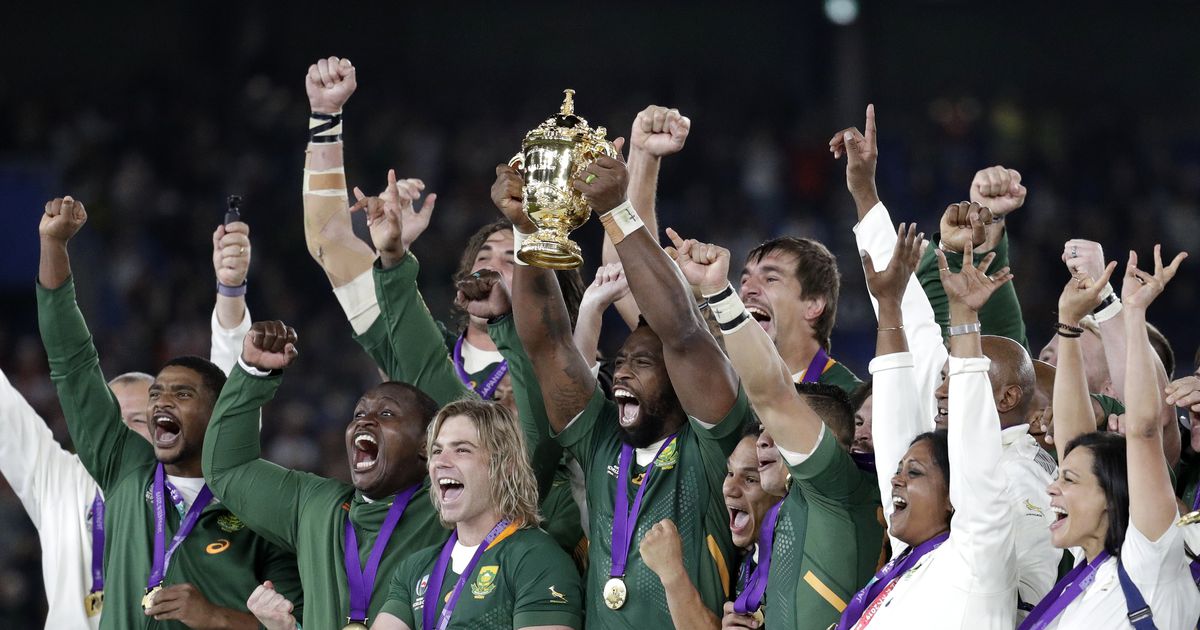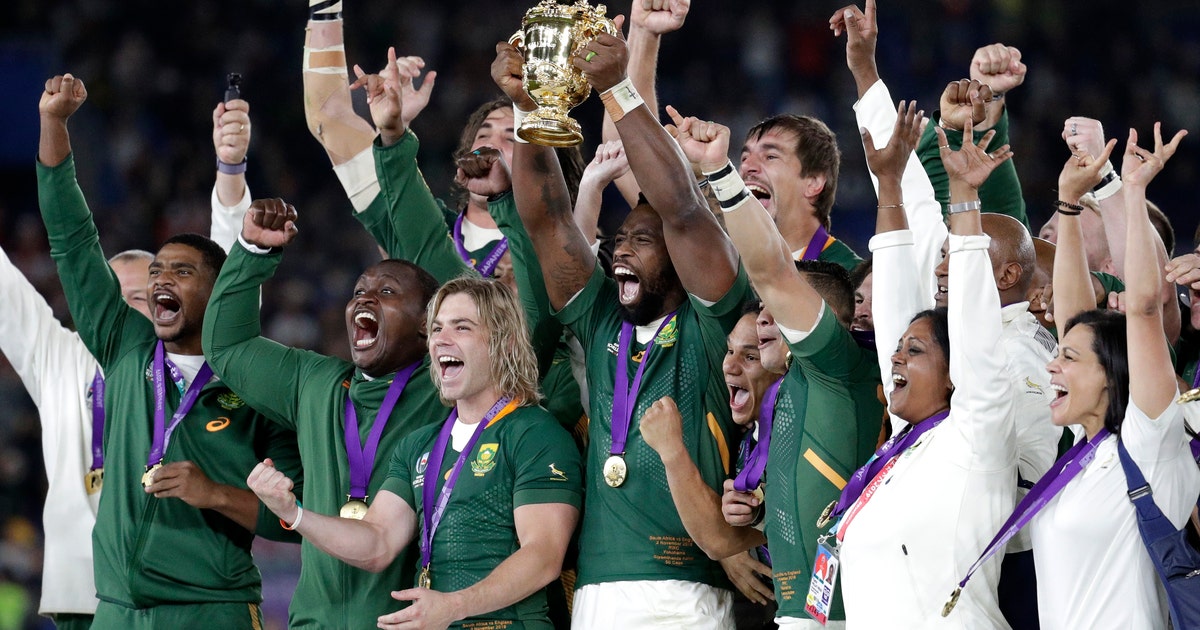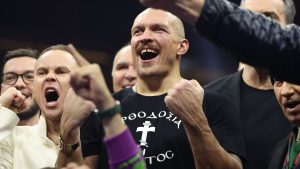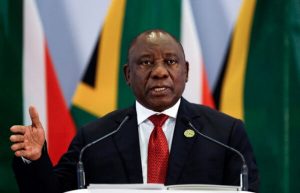No burden, no pressure as Erasmus steers Boks to victory


YOKOHAMA, Japan (AP) — Of all the intricate details that went into 618 days of planning for this moment, Rassie Erasmus regarded none as more important to impart on his Springboks than context.
Why are they at the Rugby World Cup? Who are they trying to win it for?
Siya Kolisi, appointed last year by Erasmus as the first black captain in 128 years of Springboks existence, lifted the Rugby World Cup trophy on Saturday after a 32-12 win over England, and dedicated it to all South Africans. His teammates hugged and danced behind him as fireworks exploded. A nation celebrated, differences put aside — at least in the moment.
Erasmus ensured there was no pressure on Kolisi or any of the Springboks to win, he said, by instilling in them the notion that pressure is relative.
“In South Africa (pressure) is not having a job (or) having a close relative who is murdered,” he said. “Rugby should not create pressure, it should create hope. We have a privilege, not a burden.”
Hope, Erasmus said, was when the Springboks played well and people watched the game and have a “nice brai” — or barbecue — “and no matter of political or religious difference for those 80 minutes, you agree when you usually disagree. That is our privilege and that was the way we tackled it.”
“There are so many good things in South Africa but always in the past, we seem to look at all the bad things,” Erasmus said. “We just decided, ‘Listen, let’s stand together and work really hard and play well on the field and then from that all the other things will come out later.’ And I think that’s what we did.”
Kolisi said the whole multiracial squad bought into Erasmus’ message from the very first meeting he had with the players. So England barely had a chance.
It’s a long way from the state of South African rugby when Erasmus was parachuted in as coach in February last year, down at 6 or 7 in the rankings. They’d been beaten 57-0 by the All Blacks and lost to Ireland by a record margin.
Erasmus was prepared to quit early if his Springboks lost a third straight game following defeats to Argentina and Australia. That game was against the All Blacks in the New Zealand capital.
No Springboks coach should survive such a run, Erasmus told his players, so they did what they needed to save his job. That win over the All Blacks was the start of a resurgence that ultimately led to this triumph.
By Erasmus’ admission, the Springboks were too inconsistent in 2018. But he remained adamant about taking the Boks back to a traditional South African game plan that is driven by the scrum.
A draw against the All Blacks in Wellington was the only game South Africa didn’t win this year on the way to a first Rugby Championship title since 2009, and before they got to Japan for the World Cup — where an opening loss to New Zealand in the group stage was a setback but also a valuable lesson.
“It was my first World Cup as a coach and the first game was a great test ground for us handling pressure,” Erasmus said. “We were terrible that week, we were tense and it was a terrible buildup and that taught us how to handle the quarterfinal and the semifinals.”
That remains the only game the Boks have lost in 2019, and that makes them the first team to lose a game at a World Cup tournament and still win it. That’s a win for resilience.
Erasmus put a lot of trust in Kolisi, a backrower he’d spotted as a teenager and helped get his first professional contract.
Asked how he’d describe his captain, and the historic moment of this victory, Erasmus retold what he was thinking during the jersey presentations for the final.
“It is easy to talk about going through hard times and struggling to get opportunities, but it is tough when there are days when you didn’t have food or couldn’t go to school or didn’t have shoes to wear,” Erasmus said. “When you sit down and think about it, there was a stage when Siya didn’t have food to eat. Yes that is the captain and he led South Africa to hold this Cup. That should sum up what Siya is.”
Kolisi is the third South Africa captain to win the World Cup title and the second to do it wearing No. 6, after Francois Pienaar’s defining victory in front of Nelson Mandela in 1995.
Erasmus, a former Springboks backrower, will turn 47 next week and is still young enough to guide South Africa to more world titles. He won’t be head coach — at least, not by title — but as director of coaching he’s already planning for the British and Irish Lions tour to South Africa in 2021.
“For us, we decided long before the Rugby Championship, we wouldn’t call it sacrifice, but we needed to be 20 weeks together to have a chance as we were so far behind the other teams,” Erasmus said. “We saw it as a massive honor to try and win it. This is Week 19, and Week 20 was always the trophy tour in South Africa.
“We are proud. We know luck was involved and a lot of people said we would not make it, but South Africans never give up.”







